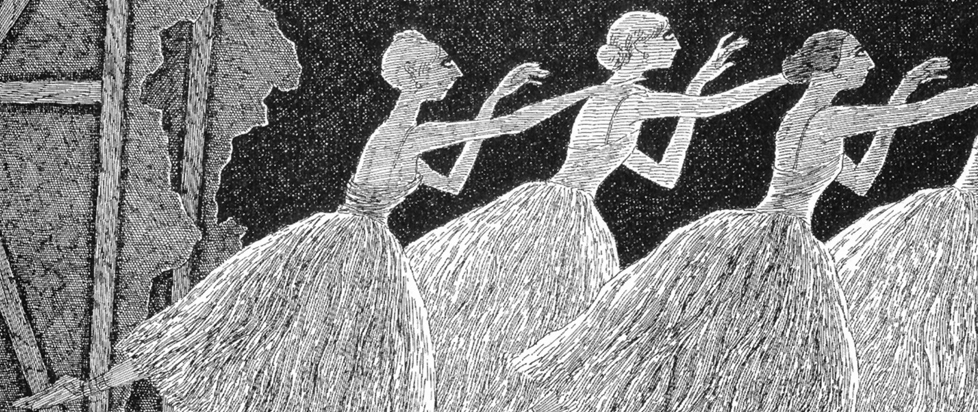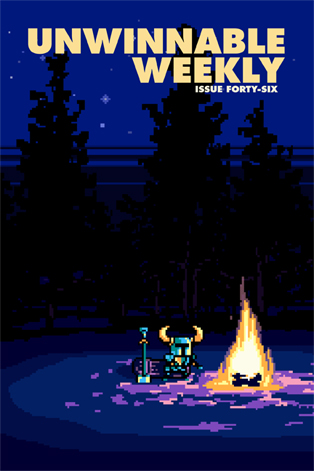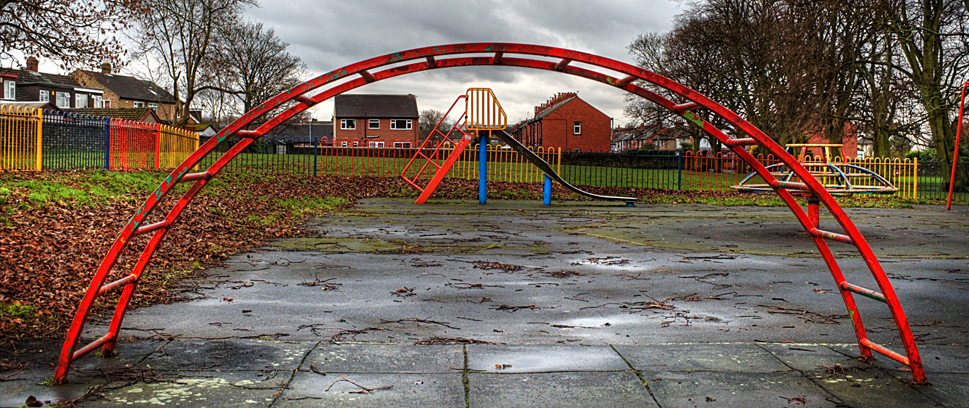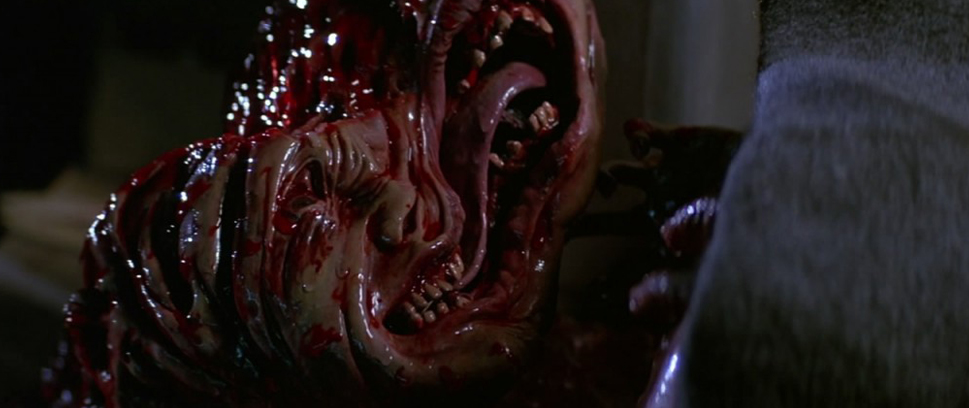
Unwinnable Weekly Issue Forty-Six

This is a reprint of the letter from the editor in Unwinnable Weekly Issue Forty-Six – check out the excerpts at the end of the post. You can buy Issue Forty-Six individually now, or purchase a one-month subscription to make sure you never miss an issue!
———
Hi there,
Daisy, my fiancée, is what you call a balletomane, that is, an enthusiast of the ballet. “Enthusiast” my be putting it lightly, at least during the American Ballet Theatre season when her interest nudges up on obsession.
I never thought I would bother with ballet, let alone enjoy it, but here I am, racking up four performances in less than a year. If you think ballet would be boring – a stuffy old art form for dusty old Upper West Side ladies, well…you’d at least be right about the median age of the audience. But boredom? I’ve never been bored.
The dancers are incredible athletes, which is impressive enough, but in addition to their physical prowess, they are instruments in an aesthetic art. Their movement and pantomime expresses in ways that are simple, fluid and coherent. Ballet is proof that language is far more than just words, a physical vocabulary. When you see emotion conveyed through the flexing of a muscle or the motion of an arm, you’ll understand, too.
On Tuesday, Daisy dragged me away from The Witcher 3 to see Diana Vishneva in the title role of Giselle, a Romantic ballet involving heartbreak and a cavalcade of vampire women who prey on unsuspecting men. The role of Giselle requires Vishneva to perform the usual physical feats expected of a principal dancer while also conveying Giselle’s physical weakness – she has a heart condition, which leaves her unsteady and prone to fainting. Similarly, her partner, Marcelo Gomes, must leap as though compelled, as if spirits and madness are pulling him into the sky. He jumps, higher and higher, but somehow appears as if he does not want to jump at all.
I’ve been thinking about the performance all week.
I find myself thinking about it as I play The Witcher. Daisy pointed out that, in between slashes of his sword, Geralt pirouettes. I can’t help but conflate the physicality of the ballet dances I have seen with this animated motion. They inform each other, the sweat of reality with the curated perfection of the digital avatar, in a way that feels important.
I don’t quite know what it means yet. That’s beside my point. Rather, my point is that I wouldn’t be thinking about this at all if I hadn’t stepped out of my comfort zone and gone to the ballet.
This weekend, take in something new. Watch a movie you think you’ll hate. Read a book that looks boring. Play that game that everyone talks about but you’ve somehow never played. You might be surprised by how your perspective changes.
* * *
This week, our cover story is an interesting look at the fullness of both Shovel Knight and Alien: Isolation by Anthony McGlynn. David Wolinsky interviews a thirteen-year-old about his gaming habits – the results may surprise you. Corey Milne reads Final Fantasy X as an indictment of Western religion. Finally, Bill Coberly contributes a short science fiction story about love and AI.
Now I gotta get back to The Witcher.
Stu Horvath,
Jersey City, New Jersey
May 29, 2015
Story Excerpts
Jack’s in seventh grade and attends the local public middle school. His mom continued, in our initial emails: “He’s currently obsessed with Europa Universalis 4 and Skyrim. There are a few games he wants to play – like Grand Theft Auto – that we won’t allow him to just yet… in addition to spending hours playing playing, he spends a lot of time watching YouTube videos of other people playing and reads blogs and posts about different strategies. Pretty typical.”
She continues: “He talks about his skills in Skyrim – how it’s fun to be bad. I think he plays as a thief. He’s super smart, nice Boy Scout-type of a kid. So, I’m not worried. We have a deal – if he keeps up his grades and stays on the cross country and track teams, we won’t nag him too much about the time he spends in front of a screen.”
I gave Jack a call on a school night to find out, well, what kids these days think about videogames.
“What Kids These Days Think About Videogames, Vol. 1,” by David Wolinsky
The Place was new when Carl first met Beth, smiling sweet sunshine as she took his drink order, scribbling it onto a pad. A Manhattan, he would remember later, not because the drink was especially good, but because it was the first thing he said to her, stumbling and stuttering to say five simple syllables: “A-Man-hat-tan-please.”
She smiled again. He was glad to have stuttered, if she thought it was cute. It wasn’t until she had vanished out of sight that he remembered himself enough to be embarrassed.
He had things he was supposed to do, reports to write and e-mails to answer. Whiskey aside, this was intended to be a working dinner, but now, there was only Beth. He ordered two more drinks and dessert just to talk to her more. Each time she smiled, his stomach hopped around and his heart threatened to stop. She made small-talk better than anyone he had ever met, made him feel at-ease and comfortable when he usually felt stilted and clumsy around pretty waitresses.
“The Waitress,” by Bill Coberly
On almost complete opposite ends of the gaming spectrum, Shovel Knight and Isolation are two games couldn’t have been more different. The former was a huge kickstarter success back in 2012, with developer Yacht Club Games promising a title that combined the most favored elements of old-school action adventures and making them into a polished modern classic (with all the trimmings of a NES game).
Isolation, on the other hand, was very much the last breath of an age-old battle to make a truly great game based on the Alien films. After Colonial Marines, faith in ever seeing the magic of the sci-fi horror stalwart replicated on console was all but destroyed. Yet what Creative Assembly delivered was something so good, it managed to restore a hope that movie tie-in games can work – even if the journey to get there takes 35 years.
“Full Games,” by Anthony McGlynn
Welcome to Spira, where God is pissed, the church is lying to you and we’re all going to hell in a hand basket. There land is threatened by Sin, a giant floating monstrosity that will destroy your village and kill your family with hurricanes and tsunamis, seemingly on a whim – natural disaster given a body. So it goes in Final Fantasy X.
The church assures the people that the only way to overcome it is to trust in the teachings of Yevon. Repent sinners and your sins shall be washed away. Sure, they’ve been at it for a thousand years to no avail, but you never know. This year feels lucky.
“Killing God with Heavy Artillery,” by Corey Milne




